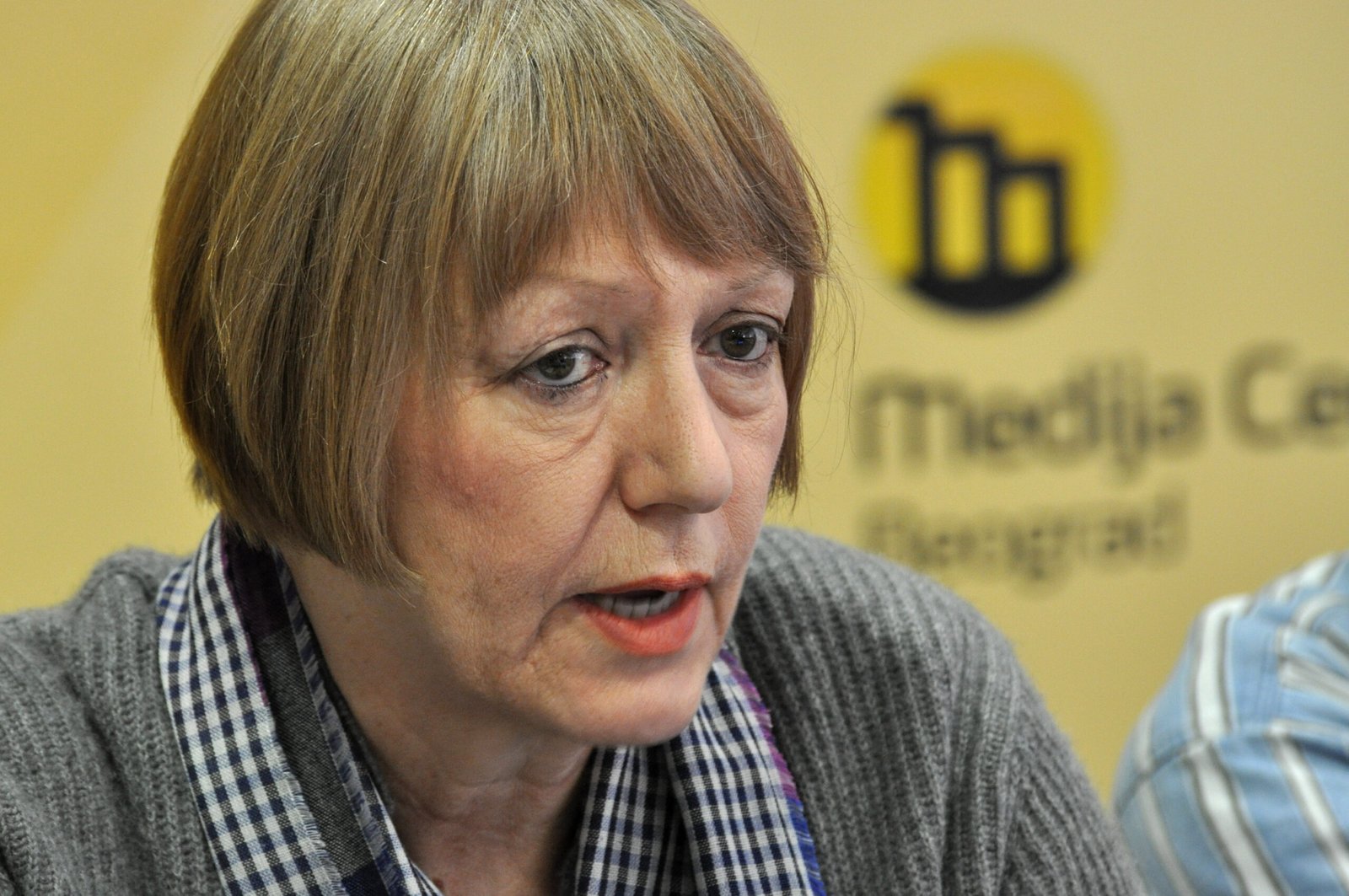The Chairwoman of the Helsinki Committee for Human Rights in Serbia, Sonja Biserko, stated that the Serbian president, Aleksandar Vucic, is not ready to implement the Brussels Basic Agreement and the Ohrid Annex. According to her, Vucic is waiting for a change in the political circumstances in the international context, especially the arrival of former President Donald Trump to power in the United States.
Biserko is pessimistic that there will be progress in the dialogue, despite possible high-level meetings and negotiations in Brussels. Meanwhile, she emphasizes that the West is not pushing Serbia to meet the requirements regarding bringing the perpetrators of the terrorist attack in Banjska in Zvecan to justice.
Biserko has called on the European Union to focus on the dialogue even after the election of new structures in the union.
“I am not sure how the situation will truly unfold, but if both parties, especially Belgrade, are willing to continue implementing the Ohrid Agreement, I am not certain. This greatly depends on the international context. First and foremost, for the elections in the White House, this is something Belgrade is anticipating, hoping for Trump’s return”. Secondly, the European Union and the shift towards the right-wing party is also something Belgrade sees as a positive move in terms of their interests, on the other hand, these groups, these parties may also influence the enlargement policy, most of them are against it. And thirdly, it also depends on how Russia will continue with the occupation of Ukraine, if it fails, how little will it react. The problem is that this Russian aggression seems to be not only against Ukraine, but against the entire West and its values, and their goal is truly to destroy this European concept, which is a unique concept in history, peaceful agreements, etc. which is extremely important for our region, considering the past decades not only of wars, but also misunderstandings and Serbia’s unpreparedness to engage in the normalization process and later reconciliation,” she tells KosovoPress.
She adds that in the current circumstances, there is potential for a crisis and tension between the parties.
Biserko declares that she does not think much will happen, but she hopes it will, although she is not sure. She sees it as a transition to the future dialogue developed by different people, because even the change in mandate is underway. Therefore, we do not know who and how will carry out this process. She hopes they will pay proper attention to the region, considering that there is always potential for a crisis, a tension as speculated since the beginning of the war in Ukraine. So, it is really a matter of security, and the EU treats the Western Balkans region as a security priority, so how this will affect the dialogue and what they will focus on, she does not know. This is something that remains to be seen.
According to her, the terrorist attack last year in Banjska, Zvečan, demonstrates just that. She emphasizes that the international community should see the potential for destabilization coming from Belgrade, as Westerners are not pushing Serbia to hold those responsible for the terrorist attack in Banjska accountable. The Banjska case was truly a warning for the Western community that the potential for destabilization coming from Belgrade exists. They reacted quickly and prevented the escalation of the situation. Unfortunately, Serbia did not respond as required by what was asked of it, both by the EU and the USA. They treat this as a reaction of the Serbian community to discrimination in Kosovo, which is not real, considering what actually happened. Therefore, Serbia is not meeting the demands, and on the other hand, the West is not really pushing Serbia to fulfill what is required of it. It is, I would say, also a result of the context, because in my opinion, the European Union is still living in a comfort zone, they are a kind of reformulation of the EU due to, let’s say, the rapid change in the international context,” she emphasizes.
She points out that the international community needs to pay attention to the situation in the region and take action to prevent further destabilization. The response to the Banjska attack serves as a reminder of the potential risks posed by Belgrade’s actions. While there was a swift reaction to the incident, the lack of a proper response from Serbia indicates a concerning trend. The reluctance of Western powers to hold Serbia accountable for its actions further complicates the situation. It is crucial for the international community to address these issues promptly and effectively to prevent any further escalation of tensions in the region. The need for a coordinated effort to ensure stability and security in the area is paramount, and all parties involved must work together to achieve this goal.
The human rights activist in Serbia considers it essential to remove punitive measures against Kosovo. She believes that these measures should not have been placed at the forefront, as it may seem pleasing to Serbia, hoping to gain support for Euro-Atlantic integrations. However, she does not see progress in this manner, as Serbia always claims to be on the path towards the EU, but she only sees it as a way to access funds available for the region, concludes Biserko.







